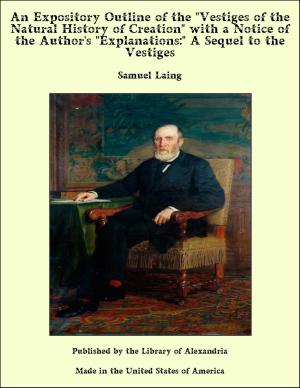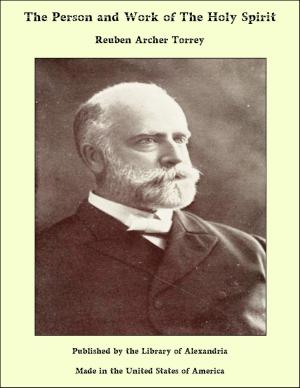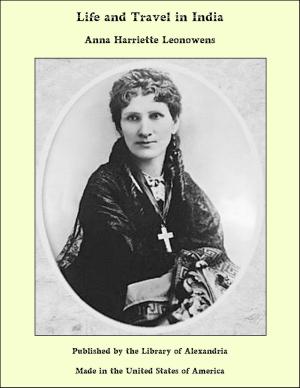The History of the Post Office
Nonfiction, Religion & Spirituality, New Age, History, Fiction & Literature| Author: | Herbert Joyce | ISBN: | 9781465545879 |
| Publisher: | Library of Alexandria | Publication: | March 8, 2015 |
| Imprint: | Language: | English |
| Author: | Herbert Joyce |
| ISBN: | 9781465545879 |
| Publisher: | Library of Alexandria |
| Publication: | March 8, 2015 |
| Imprint: | |
| Language: | English |
EARLY POSTS 1533-1609 The early history of the posts is involved in some obscurity. What little is known on the subject is touched upon in the first Annual Report of the Post Office, the Report for 1854; but the historical summary there given is, as it purports to be, a summary only. The object of the following pages is nothing more than to fill up the gaps and to supply some particulars for which, though not perhaps without interest, an official report would be no fitting place. The origin and progress of an institution which has so interwoven itself with the social life of the people as to have become one of the most remarkable developments of modern civilisation can hardly, we think, be considered a subject unworthy of study. It seems almost certain that until the reign of Henry the Eighth, or perhaps a little earlier, no regular system of posts existed in England, and that then and for some considerable time afterwards the few posts that were established were for the exclusive use of the Sovereign. "Sir," writes Sir Brian Tuke to Thomas Cromwell in 1533, "it may like you to understonde the Kinges Grace hathe no moo ordinary postes, ne of many days hathe had, but bitwene London and Calais ... and sens October last, the postes northewarde.... For, Sir, ye knowe well that, except the hakney horses bitwene Gravesende and Dovour, there is no suche usual conveyance in post for men in this realme as is in the accustumed places of France and Other parties." Sir Brian Tuke held the appointment of Master of the Posts, and he had received the King's commands to set up posts "in al places most expedient." Before Henry's reign the only letters of which any record exists, letters to or from the Court and on affairs of State, were sent by couriers employed for the particular occasion. These couriers, styled "Nuncii" and "Cursores," appear to have answered to the Queen's messengers of our own time, and, as is evident from records still extant and dating back to the reign of Henry the Third, must have formed an important branch of the royal establishment. To establish posts and to control them when established was not all or nearly all that Brian Tuke had to do. He had also to see, even where no posts existed, that the royal couriers were not kept waiting for horses; and this probably was his original function. The horses were provided by the townships, and the townships were kept up to their duty by the Master of the Posts. In some cases, indeed, special provision appears to have been made. At Leicester,[1] for instance, the members of the Corporation bound themselves under penalty to keep four post-horses in constant readiness for their Sovereign's use; but this can hardly have been a common practice. Where horses were not provided voluntarily, the magistrates and constables had orders to seize them wherever they could be found
EARLY POSTS 1533-1609 The early history of the posts is involved in some obscurity. What little is known on the subject is touched upon in the first Annual Report of the Post Office, the Report for 1854; but the historical summary there given is, as it purports to be, a summary only. The object of the following pages is nothing more than to fill up the gaps and to supply some particulars for which, though not perhaps without interest, an official report would be no fitting place. The origin and progress of an institution which has so interwoven itself with the social life of the people as to have become one of the most remarkable developments of modern civilisation can hardly, we think, be considered a subject unworthy of study. It seems almost certain that until the reign of Henry the Eighth, or perhaps a little earlier, no regular system of posts existed in England, and that then and for some considerable time afterwards the few posts that were established were for the exclusive use of the Sovereign. "Sir," writes Sir Brian Tuke to Thomas Cromwell in 1533, "it may like you to understonde the Kinges Grace hathe no moo ordinary postes, ne of many days hathe had, but bitwene London and Calais ... and sens October last, the postes northewarde.... For, Sir, ye knowe well that, except the hakney horses bitwene Gravesende and Dovour, there is no suche usual conveyance in post for men in this realme as is in the accustumed places of France and Other parties." Sir Brian Tuke held the appointment of Master of the Posts, and he had received the King's commands to set up posts "in al places most expedient." Before Henry's reign the only letters of which any record exists, letters to or from the Court and on affairs of State, were sent by couriers employed for the particular occasion. These couriers, styled "Nuncii" and "Cursores," appear to have answered to the Queen's messengers of our own time, and, as is evident from records still extant and dating back to the reign of Henry the Third, must have formed an important branch of the royal establishment. To establish posts and to control them when established was not all or nearly all that Brian Tuke had to do. He had also to see, even where no posts existed, that the royal couriers were not kept waiting for horses; and this probably was his original function. The horses were provided by the townships, and the townships were kept up to their duty by the Master of the Posts. In some cases, indeed, special provision appears to have been made. At Leicester,[1] for instance, the members of the Corporation bound themselves under penalty to keep four post-horses in constant readiness for their Sovereign's use; but this can hardly have been a common practice. Where horses were not provided voluntarily, the magistrates and constables had orders to seize them wherever they could be found















